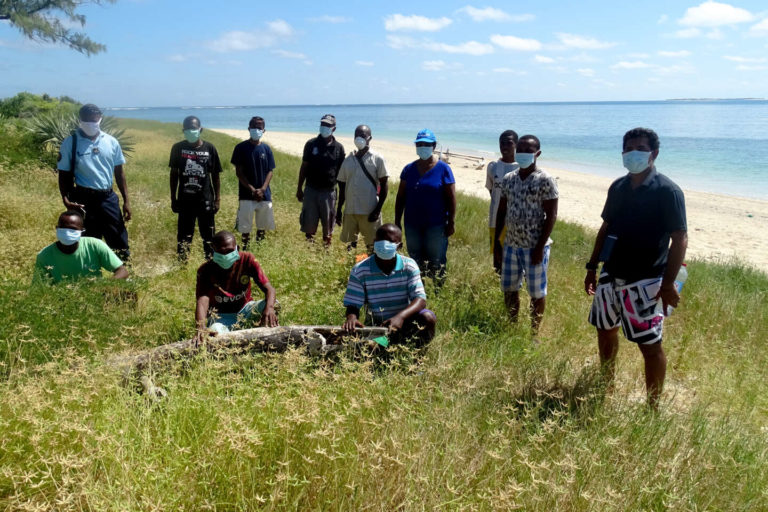Protected areas and their surrounding communities have experienced severe impacts from the first 12 months of the COVID-19 pandemic. The impacts of existing pressures on nature − such as overfishing and the climate crisis − have been amplified with the onset of the pandemic, while locally led responses have bolstered community resilience. These are the findings of new research published this week in a special issue of PARKS, the International Journal of Protected Areas and Conservation.
COVID-19 has had significant impacts on the livelihoods and well-being of communities around the globe. For coastal communities, marine tourism plunged, many international seafood supply chains broke down, and movement restrictions led to widespread job losses. As well as exposing the vulnerability of many livelihoods, the pandemic unearthed weaknesses in global public health systems, highlighting the need for improved health care services worldwide, particularly among low income and vulnerable communities.
The pandemic provides an opportunity to understand how organisations like Blue Ventures can help bolster community resilience to future economic and environmental shocks while continuing our support for conservation.
Two new research papers provide the most comprehensive analysis to date of the impacts of the pandemic on communities and nature conservation. The research documents the scale of challenges and extent of disruption to livelihoods and protected areas. Authors from Blue Ventures contributed case studies to both papers, providing insights from our response efforts in Madagascar and Belize.
Communities that were able to govern and access their lands and waters showed more resilience than those who were not. With secure access, these communities were able to continue sourcing food and traditional medicines, while providing care for others in their communities. Communities whose tenure rights were protected were able to continue defending their lands and waters from misuse and mismanagement, reinforcing their ability to continue marine conservation efforts.
Access to alternative income streams provide an important ingredient for community resilience. In the Velondriake Locally Managed Marine Area (LMMA) in Madagascar, community members reliant on fishing as their sole income suffered more from disruption to seafood markets than those with alternative incomes from aquaculture, producing products whose supply chains were less affected by disruption during the early stage of the pandemic. Those communities who relied heavily on tourism also adapted to the loss of income by returning to fishing, and those who had lost jobs in the cities returned to their coastal communities to live with and support their families.
Dr Vik Mohan, Blue Ventures’ Director of Community Health, and co-author of the research, commented: “As we witness the impact of shocks on communities, be they health or environmental, we see that NGOs can play a valuable part in supporting communities to respond, as long as we listen to, and work in partnership with, communities. Solutions are best generated by communities themselves.”
Supporting local health responses also played an important role in helping communities respond and weather the pandemic. Working closely with community leaders and Madagascar’s Ministry of Health, Blue Ventures supported a locally led health response to COVID-19 to help reduce transmission of the virus and to shield the most vulnerable. This included installing handwashing stations, manufacturing face masks through local women’s associations, and developing clinical procedures to minimise health worker-client transmission. These actions have kept community workers healthy, health centres open and allowed essential health care services to continue.
The research sheds important light on how locally led responses have resulted in greater socio-ecological resilience, underscoring the critical importance of community led responses to crises. Blue Ventures continues to monitor the impacts of the pandemic on coastal communities, supporting locally led action and sharing learning with our partners and networks.
The entire special issue can be viewed here: https://parksjournal.com/parks-27-si-march-2021/
Dive in to learn more about How are small-scale fishing communities responding to the impacts of COVID-19
Explore our COVID-19 resources for organisations working in community conservation and small-scale fisheries
Read a commentary from our executive director, Dr Alasdair Harris, about the urgency of holistic and community led approaches to conservation























